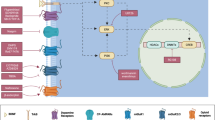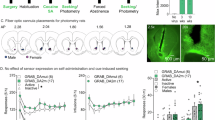Abstract
Cocaine does not only evoke intense rewarding sensations but also induces craving for more cocaine. This latter effect is especially obvious in addicted individuals and is thought to contribute together with other factors to trigger relapse after abstinence. Cocaine-induced craving can be studied in animals in the drug reinstatement model. In this model, responding for the drug (e.g., pressing a lever) is first extinguished by discontinuing drug reinforcement and then reinstated by drug priming (i.e., non-contingent re-exposure to the drug) or stress. Importantly, during reinstatement testing, responses continue to be unrewarded as during extinction and, therefore, reflect genuine drug seeking. Here we show that reinstatement of cocaine seeking can be rapidly extinguished with daily repeated cocaine priming. The extinction of cocaine seeking fully generalized to stress, another major trigger of drug craving and relapse. These findings suggest that cocaine and stress induce drug craving by generating similar conditioned interoceptive effects. The targeted extinction of these effects by repeated drug priming under medical supervision may represent a novel behavioral therapy against relapse in abstinent cocaine addicts.
Similar content being viewed by others
Article PDF
Author information
Authors and Affiliations
Corresponding author
Rights and permissions
About this article
Cite this article
Ahmed, S., Koob, G. Rapid extinction of cocaine craving: toward a novel cue exposure therapy. Nat Prec (2009). https://doi.org/10.1038/npre.2009.2980.1
Received:
Accepted:
Published:
DOI: https://doi.org/10.1038/npre.2009.2980.1



